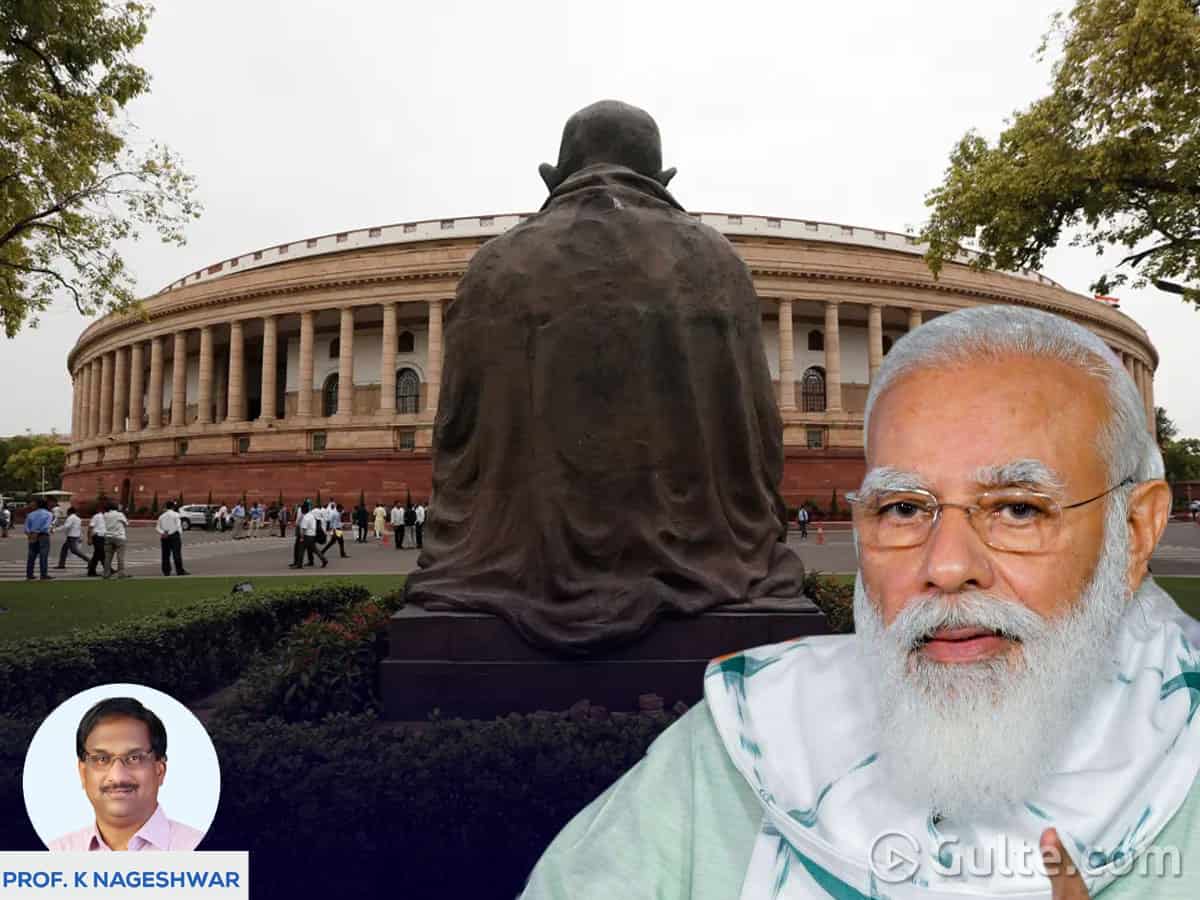Modi government decided to cancel the winter session of the parliament. Parliament will now meet for the budget session in early 2021. Though pandemic is cited as a reason, opposition smells a strategy to abdicate parliamentary scrutiny as the nation witnesses historic farmers’ protest. With the economy reeling under recession, the government expects a strong attack from the opposition.
Modi government has not violated any constitutional provision by doing away with the winter session. Technically the government of India may be right. In fact, it is the prerogative of the government to fix the schedule for the parliamentary sessions. Indian parliament does not have a fixed calendar. In the early years of independent India, the speaker used to announce the date for the next session on the last day of the preceding session. Subsequently, this tradition has been done away with. Article 85(1) of the constitution of India says, “The President shall form time to time summon each House of Parliament to meet at such time and place as he thinks fit, but six months shall not intervene between its last sitting in one session and the date appointed for its first sitting in the next session”.
This means the constitution envisages a maximum intersession period of six months. It amounts to a minimum of two sessions a year. But the tradition since the first parliament is to have three sessions- Budget, Monsoon, and winter sessions. The financial business takes away the lions share of the budget session, leaving very little scope for other legislative business or any private business.
Parliament met for three sessions even at a time when the nation was engaged in a war with China in 1962 and Pakistan in 1965 & 1971. There can never be any bigger emergency than war.
On at least three occasions, the winter session was abrogated. Firstly, during the emergency in 1975, parliament had two sessions only. The winter session was cancelled in 1984 as general elections were held in December following the assassination of Prime Minister Indira Gandhi. Though in 2008 parliament had no winter session, but extended monsoon session was held for a few days in December.
The history reveals that parliament had only two sessions essentially after the proclamation of emergency as there were valid reasons on two other occasions. Thus, cancelling the winter session of parliament tantamounts to invoking of emergency era practice.
A pandemic cannot be the reason for not having the winter session as the government of India has opened pubs, bars, restaurants, and even cinema halls. Elections were held in Bihar and elsewhere. Even state assemblies have been meeting. Thus, the political motives behind the decision to do away with the winter session cannot be ruled out.
By Prof K Nageshwar
For Prof K Nageshwar’s views please subscribe to Telugu Videos : English Videos
Tags Narendra Modi Prof K Nageshwar
 Gulte Movie News And Politics
Gulte Movie News And Politics

















